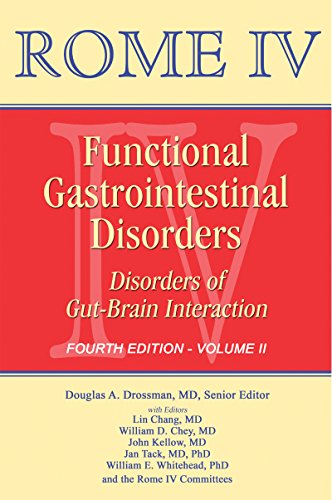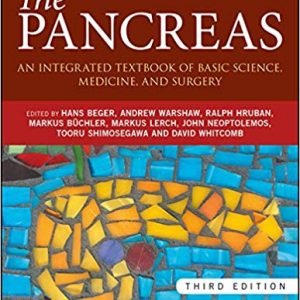Author(s)

Douglas A. Drossman
Dr. Douglas A. Drossman received his M.D. degree at Albert Einstein College of Medicine and obtained his medical residency at the University of North Carolina School of Medicine and NYU – Bellevue Medical Center. He sub-specialized in Biopsychosocial Medicine at the University of Rochester School of Medicine and in Gastroenterology at the University of North Carolina.
Douglas is currently Professor Emeritus of Medicine and Psychiatry at the University of North Carolina School of Medicine where he was on staff from 1977 through 2011. He was co-director and founder of the UNC Center for Functional Gastrointestinal and Motility Disorders (since 1993). Dr. Drossman was also founder, past chair (1989-1993) and newsletter editor of the Functional Brain-Gut Research Group of the AGA, Chair (since 1989) of the Rome Committees (Rome I, II,III and IV) and President of the Board of the Rome Foundation (since 2004), past Chair of the Functional GI American Digestive Health Foundation’s Digestive Health Initiative (1999-2001) and of the Motility and Nerve-Gut Section of the AGA Council (2003-2005).
He has written over 500 book chapters and articles has published 2 books, a textbook of Functional GI disorders (Rome I, II, III), and a GI Procedure Manual, and serves on 6 editorial and advisory boards in psychosomatic medicine, gastroenterology, behavioral medicine, and patient health. He served for 5 years as the Associate Editor of the journal Gastroenterology and was the Gastroenterology Section Editor of the Merck Manual for 17 years.

John Kellow
Dr. John Kellow, MD, is currently Head of the Discipline of Medicine, and Associate Professor at Northern Clinical School, University of Sydney, and Gastroenterologist and Director of the Neurogastroenterology Unit at Royal North Shore Hospital, Sydney (Australia).
John graduated MBBS from the University of Sydney and subsequently received his doctorate (MD) from that university in 1988. He was made a fellow of the Royal Australasian College of Physicians in 1985. He was a University of Sydney Travelling Fellow at the Mayo Clinic, USA in 1984-1985, and was a Commonwealth Medical Fellow at the Royal London Hospital Medical College, UK in 1986. Dr. Kellow is a member of the Gastroenterological Society of Australia, The American Neurogastroenterology and Motility Society, The American Gastroenterological Association, and the European Society of Neurogastroenterology and Motility.
John has published extensively including original book chapters, research papers, and reviews. His long-standing and primary research interests are disorders of gastrointestinal motility and the pathophysiology and treatment of the functional gastrointestinal disorders

Lin Chang
Dr. Lin Chang, MD, earned her medical degree from the UCLA School of Medicine and completed her residency and internship in internal medicine at Harbor-UCLA Medical Center. She completed her gastroenterology fellowship training at the UCLA affiliated training program in gastroenterology. She is Vice-Chief of the Vatche and Tamar Manoukian Division of Digestive Diseases. Lin also serves as the Co-Director of the G. Oppenheimer Center for Neurobiology of Stress and Resilience at UCLA and Program Director of the UCLA Gastroenterology Fellowship Program.
Dr. Chang's research focuses on brain-gut interactions underlying irritable bowel syndrome (IBS), specifically, the pathophysiology of IBS related to stress, sex differences, epigenetic and genetic factors, early life adversity, and gut microbiome and the treatment of IBS. She is the recipient of the Janssen Award in Gastroenterology for Basic or Clinical Research and the AGA Distinguished Clinician Award. Lin has authored more than 60 review articles, 130 original research articles, and 25 book chapters on her specialty interests.

William D. Chey
Dr. William D. Chey, MD, a Professor of Internal Medicine and a Gastroenterologist, heads research looking at dietary and lifestyle interventions for IBS to pave the way toward evidence-based, life-changing nutritional and behavioral solutions, both for flares and to prevent and cure IBS.
Bill received his BA degree from the University of Pennsylvania and medical degree & training in internal medicine at the Emory University School of Medicine. He went on to complete a fellowship in gastroenterology at the University of Michigan. He is a former co-editor of the American Journal of Gastroenterology, a recipient of the Dean’s Outstanding Clinician Award, and a member of the U-M League of Research Excellence.
William is also the Director of the Food for Life Demonstration Kitchen and is involved in efforts to establish the first-of-its-kind Nutrition Center for Digestive Diseases at Michigan Medicine.














Reviews
There are no reviews yet.